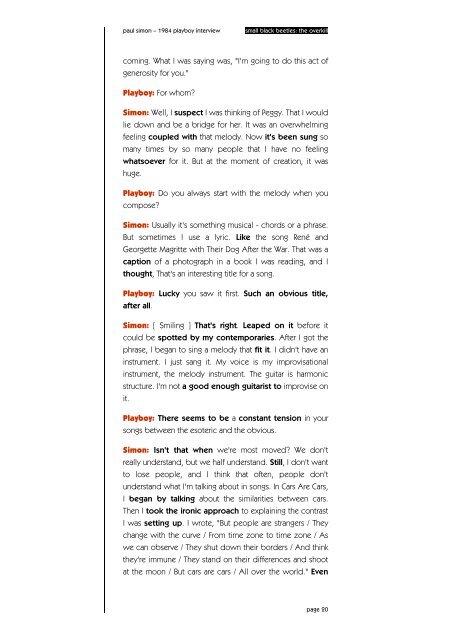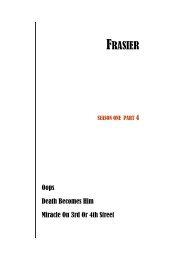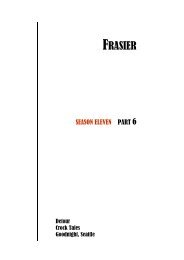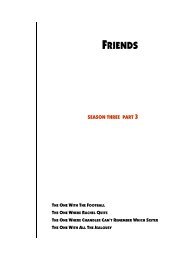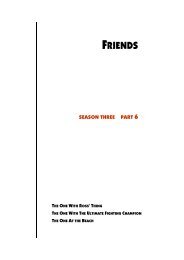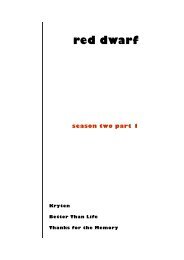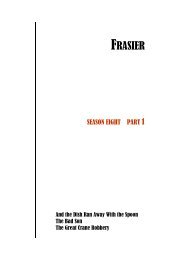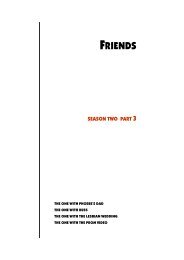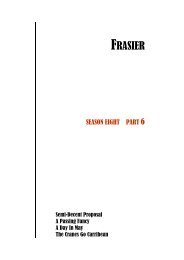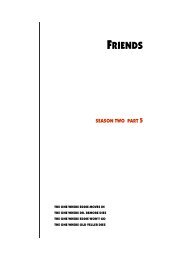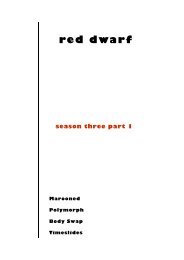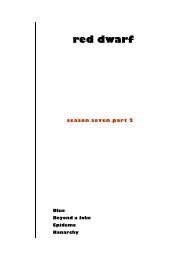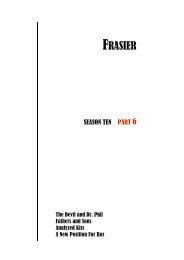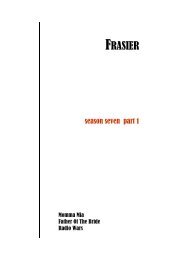You also want an ePaper? Increase the reach of your titles
YUMPU automatically turns print PDFs into web optimized ePapers that Google loves.
<strong>paul</strong> <strong>simon</strong> – 1984 <strong>playboy</strong> <strong>interview</strong> small black beetles: the overkill<br />
coming. What I was saying was, "I'm going to do this act of<br />
generosity for you."<br />
Playboy: For whom?<br />
Simon: Well, I suspect I was thinking of Peggy. That I would<br />
lie down and be a bridge for her. It was an overwhelming<br />
feeling coupled with that melody. Now it's been sung so<br />
many times by so many people that I have no feeling<br />
whatsoever for it. But at the moment of creation, it was<br />
huge.<br />
Playboy: Do you always start with the melody when you<br />
compose?<br />
Simon: Usually it's something musical - chords or a phrase.<br />
But sometimes I use a lyric. Like the song René and<br />
Georgette Magritte with Their Dog After the War. That was a<br />
caption of a photograph in a book I was reading, and I<br />
thought, That's an interesting title for a song.<br />
Playboy: Lucky you saw it first. Such an obvious title,<br />
after all.<br />
Simon: [ Smiling ] That's right. Leaped on it before it<br />
could be spotted by my contemporaries. After I got the<br />
phrase, I began to sing a melody that fit it. I didn't have an<br />
instrument. I just sang it. My voice is my improvisational<br />
instrument, the melody instrument. The guitar is harmonic<br />
structure. I'm not a good enough guitarist to improvise on<br />
it.<br />
Playboy: There seems to be a constant tension in your<br />
songs between the esoteric and the obvious.<br />
Simon: Isn't that when we're most moved? We don't<br />
really understand, but we half understand. Still, I don't want<br />
to lose people, and I think that often, people don't<br />
understand what I'm talking about in songs. In Cars Are Cars,<br />
I began by talking about the similarities between cars.<br />
Then I took the ironic approach to explaining the contrast<br />
I was setting up. I wrote, "But people are strangers / They<br />
change with the curve / From time zone to time zone / As<br />
we can observe / They shut down their borders / And think<br />
they're immune / They stand on their differences and shoot<br />
at the moon / But cars are cars / All over the world." Even<br />
page 20


